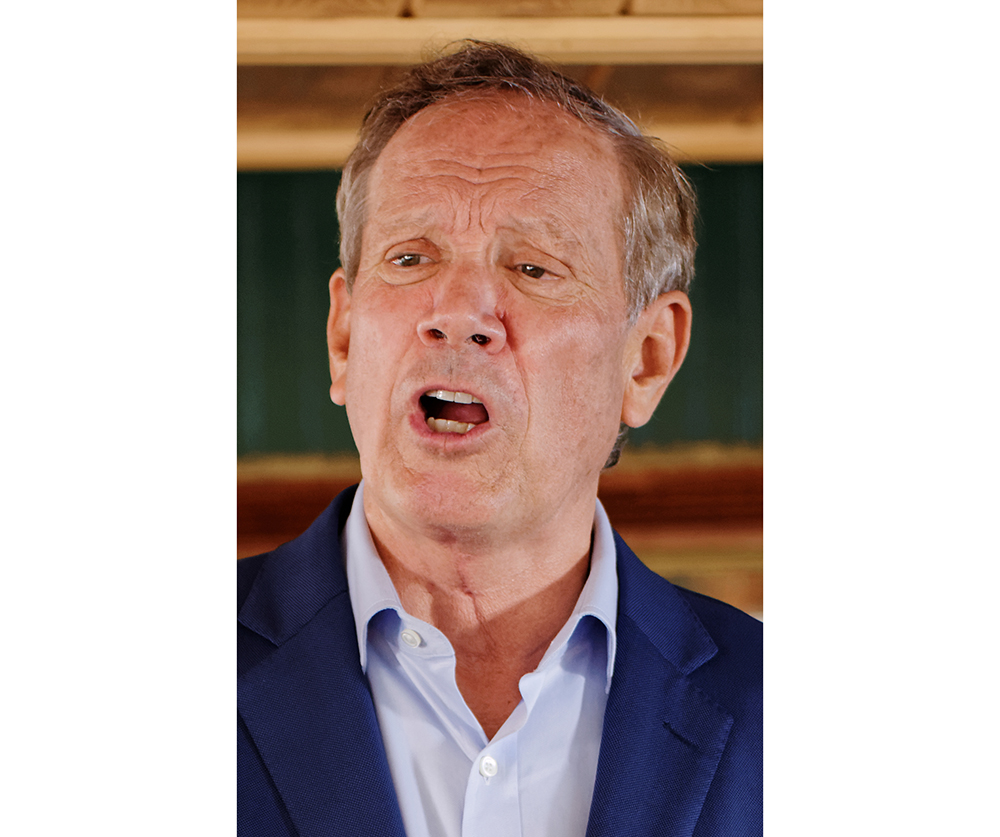|
Getting your Trinity Audio player ready...
|
By Mickey Cohen
Former New York Governor George Pataki has sharply criticized the state’s ambitious renewable energy law, calling it impractical and warning of a looming energy crisis.
Speaking on 770 WABC’s Cats Roundtable on Sunday, the Republican who served three terms said the law’s goals for replacing fossil fuels with renewable sources like wind and solar by 2030 are simply unattainable.
“On wind and solar… [if] the wind doesn’t blow and the sun doesn’t shine, what are you going to do?” Pataki asked. He emphasized the enormous gap between energy consumption and energy production in New York and argued the state is unprepared to meet its escalating energy demands.
The law, known as the 2019 Climate Act, was championed by former Governor Andrew Cuomo and the Democratic-led legislature. It mandates 70% renewable electricity by 2030, net-zero carbon emissions by 2040, and a 40% reduction in greenhouse gas emissions by 2030 compared to 1990 levels. Pataki described these targets as “incredibly short-sighted and ignorant.”
“That’s just not going to happen. We need to continue to have fossil fuel generation whether we like it or not,” he said, adding that by 2040, the energy gap in New York could reach nearly 50%.
Pataki, who once supported clean energy initiatives during his tenure, argued that small nuclear reactors could be a viable solution to the state’s energy challenges. “The most logical ones are small nuclear reactors that can generate power locally and fuel an entire community with zero emissions,” he said. These reactors, which have been used successfully on submarines and aircraft carriers for decades, offer a safe and efficient alternative to large-scale renewable energy projects, he explained.
The New York Post noted that Governor Kathy Hochul and state officials have signaled interest in exploring nuclear energy as part of New York’s clean energy strategy. However, Hochul faced public backlash earlier this year when she announced a ban on gas stoves in new buildings, requiring electric alternatives starting in 2024. Critics labeled the move as overreach, highlighting concerns about the practicality of relying solely on electric appliances amid an unstable energy grid.
Pataki’s critique echoes the sentiments of many energy experts and business leaders who argue the state’s renewable energy mandates are overly ambitious. As the Post reports, these critics believe that while renewable sources like wind and solar are important, they are insufficient on their own to meet New York’s energy needs.
“We’re going to see the need for energy in New York State probably double between now and 2040,” Pataki said. “But we don’t have the ability right now, or the planning, to fill that gap in any way that is actually going to work.” He urged the state to act swiftly, warning that failing to plan for realistic energy solutions could lead to severe shortages in the future.
Despite the grim outlook, Pataki expressed hope that state leaders would take action. “I hope the state gets its act together and starts looking at [small nuclear reactors] in an aggressive way very soon,” he said, according to the Post.
While Hochul’s office did not immediately respond to Pataki’s remarks, discussions about incorporating nuclear energy into New York’s renewable energy goals are ongoing. At a September energy summit, Hochul and other officials acknowledged the potential role of nuclear reactors in achieving the state’s climate targets.





